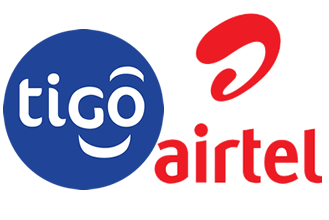TUC calls for due diligence in Airtel-TiGo merger
 The Ghana Trades Union Congress (GTUC) has urged the government to ensure that there was due diligence on the Airtel – TiGo merger; so that the state does not lose.
The Ghana Trades Union Congress (GTUC) has urged the government to ensure that there was due diligence on the Airtel – TiGo merger; so that the state does not lose.
Mr Eric Amoadu-Boateng, the Deputy Head, Organisation Department of the GTUC, said there was the need for government to check the tax records of each of the two companies before allowing them to go ahead with the merger; stating that “it is ultimately a political matter requiring governance decisions”.
Mr Amoadu-Boateng made the appeal in his presentation at the 2017 annual World Public Services Day celebration in Accra.
In 2003, the United Nations dedicated the 23rd of June for the commemoration of the annual World Public Services Day.
This year, the commemoration focused on the move towards amplifying tax justice campaigns through the unavoidable linkages of social economic contract tax payers and government.
The event was organised by the Ghana Integrity Initiative (GII) in partnership with the Tax Justice Coalition and the Public Service International.
Speaking on the topic “The Impact of Illicit Financial Flows (IFFs) Regimes and Public: Public Status”, Mr Amoadu-Boateng said tax justice and IFFs were now topical issues in Africa; stating that it was about development, social justice and fighting inequality.
He said the need to move away from aid and mobilize resources for development had become a concern to African governments in general and Ghana in particular.
Mr Amoadu-Boateng said development aid and other facilities, mostly from the Organisation for Economic Co-operation and Development (OECD) countries, which were depended upon to fill the financing gap for development had resulted in unsustainable indebtedness and seemingly loss of sovereignty of African countries.
He said current information showed that Africa was losing more from IFFs and harmful tax incentives and practices.
He noted that the High Level Panel on IFFs indicated that the continent losses about $60 billion annually through IFF; also, an Action-Aid report on investment in Ghana found that the country was losing over $ 1.2 billion annually due to tax incentives.
“In addition, 41 per cent of trade tax and 28 per cent of direct tax and VAT revenues were lost through exemptions in 2012,” he added.
He said the numerous abuses in the tax incentive system had been conceded by the government; declaring that ‘tax is the price we pay for the things that make our society work’.
“Thus, when citizens and companies pay taxes, we expect to benefit from the provision of certain public goods and services.”
He said society also required the state to have some resources to fund the physical and social infrastructure critical to our socio-economic development and security.
“However, we find ourselves not investing enough in infrastructure that could deliver quality public goods and services, which are critical in addressing inequality and poverty.
“This is attributed mainly to our inability to rake in all the needed revenue from taxes.”
He noted inequality was getting worse globally and that included Ghana.
Mr Amoadu-Boateng cited the Ghana Statistical Service (2014), that income inequality as measured by the Gini Coefficient increased from 41.9 per cent in 2005/6 to 42.3 per cent in 2012/13; also 22 per cent of employed persons were poor.
He said inequality was economically inefficient, politically corrosive, socially divisive, environmentally bad and morally unjustifiable.
He said the value of access to public goods and services was the greatest wealth workers and most citizens would ever have in their lifetime; stating that it provided opportunity for education, well being and social security.
Mr Amoadu-Boateng said tax justice enabled public spending for the common good and provided the means for economic self-sufficiency.
He noted that one thing very clear from the Mbeki report was that IFFs from Africa were large and increasing.
He said from the information available, Ghana as a country was also loosing huge revenues from taxes through tax exemptions, fraud/corruption and price transfers, tax evasion, tax avoidance, and other illicit transfers by companies.
He said corporate tax abuses could also be found in other sectors such as the power, petroleum and mining through stability clauses and model agreements.
On the impact of IFFs on fiscal regime and public, Mr Amoadu-Boateng mentioned revenue shortfalls resulting in deficits; declaring that a weak fiscal regime impeded government ability to execute fiscal policy.
He said over the last decade, gross domestic products (GDP) had averaged about six per cent but it had not led to any significant employment creation.
“So what type of growth or economic development is this?” he questioned.
Mr Frederick Opare-Ansah, the Member of Parliament for Suhum, and a Member of the African Parliamentarians Network on Illicit Financial Flows and Tax (APNIFFT) said the Network had the desire and commitment to spearhead the fight against illicit financial flows in Africa.
He said APIFFT’s main aim was to provide a platform for African legislators to undertake sustained advocacy- related dialogue and debate in a simplified manner on IFFs, tax governance and domestic resource mobilisation.
Mrs Linda Ofori-Kwafo, the Executive Director of the GII, said the commemoration of the World Public Services Day was to deepen workers and the public’s understanding of tax justice and its direct connection with efficient delivery of public services.
She said there was a global push for multi-national companies to pay their fair share of tax to fund quality public services and sustainable economic development.
Source: GNA
